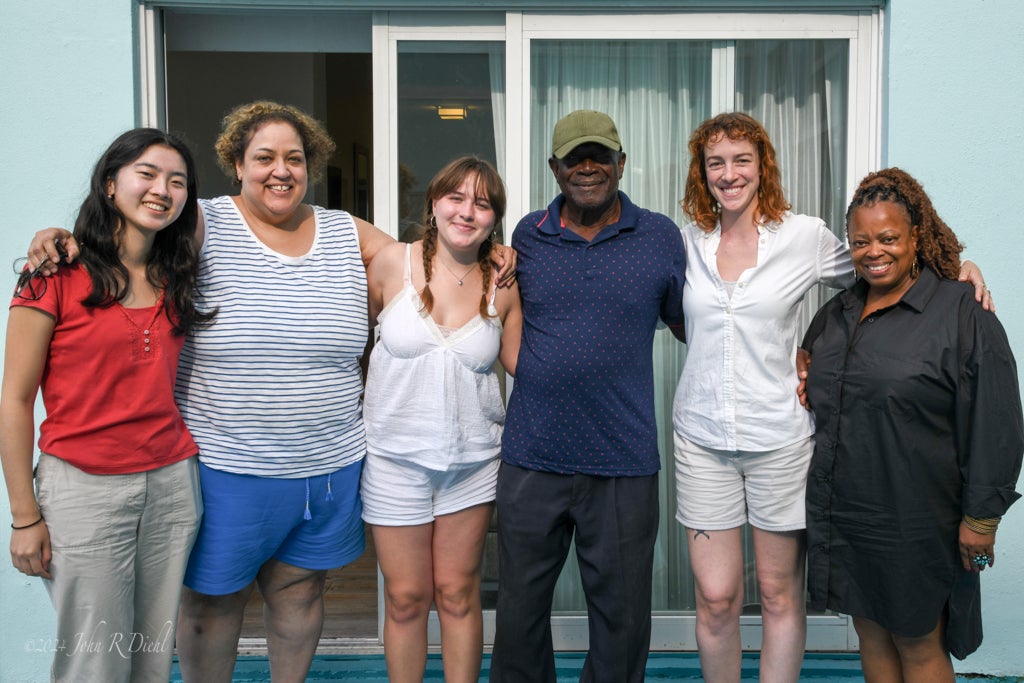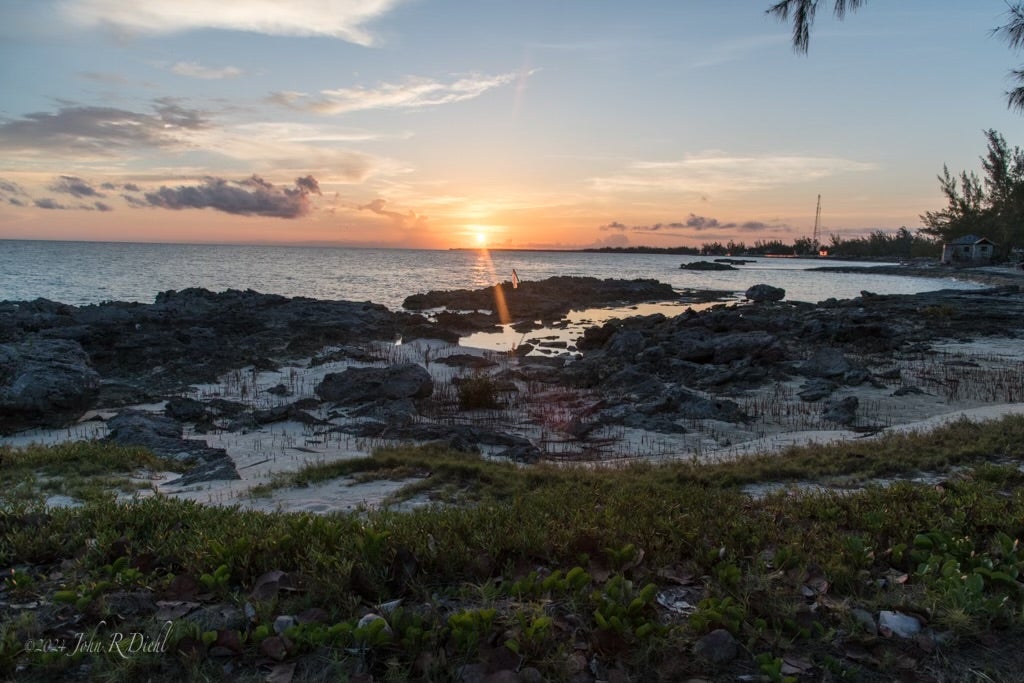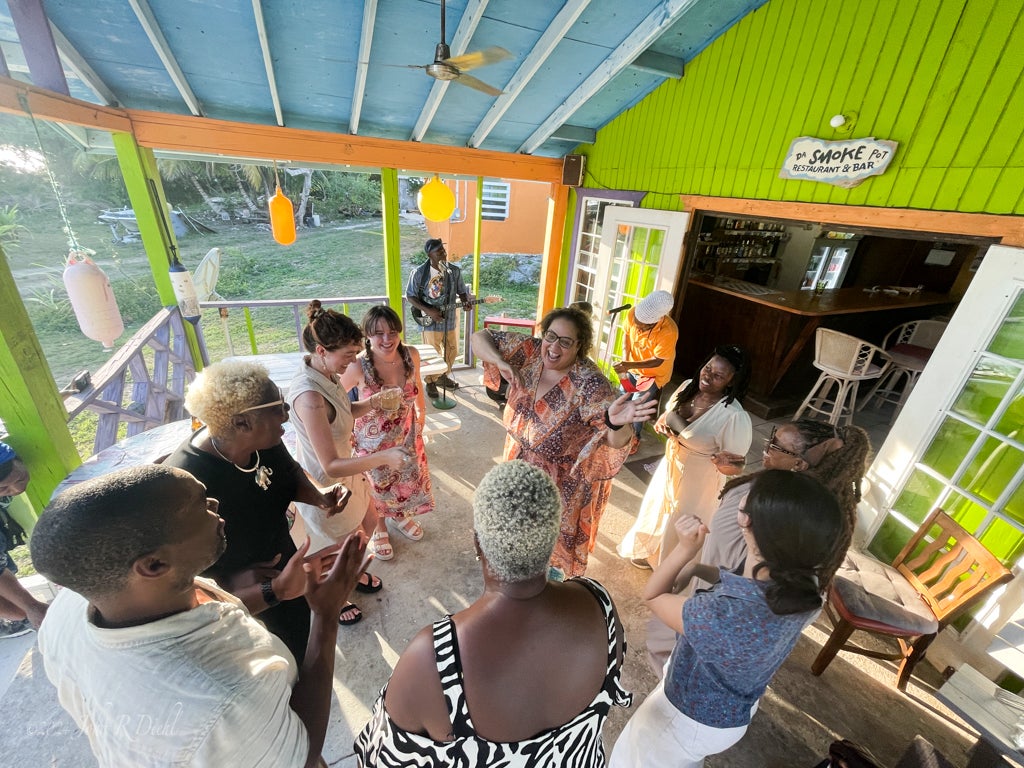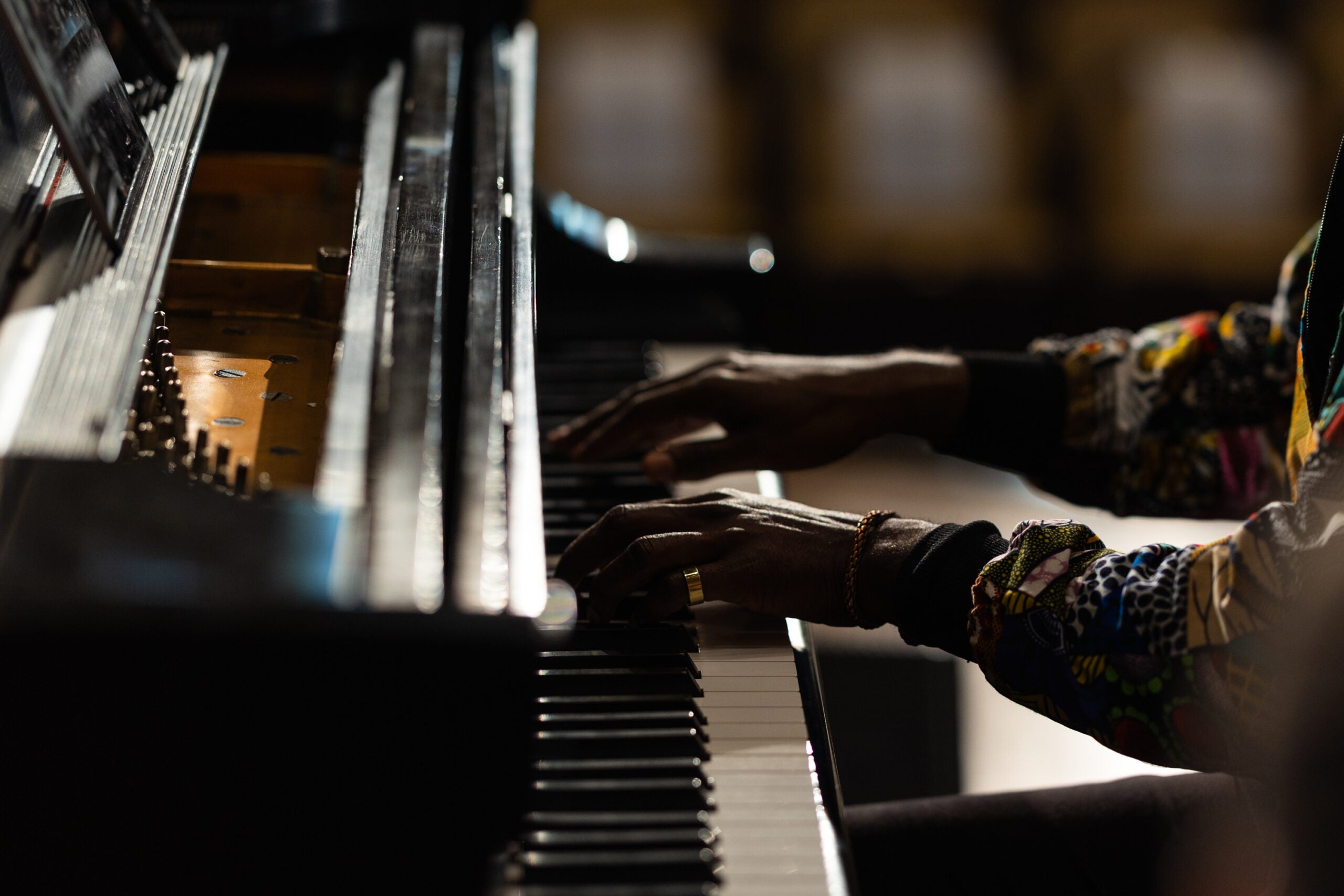The Woodshed: A Center for Art, Thought & Culture
A Research Center of the Racial Justice Institute
The Woodshed Center uses arts methodologies to explore race-based issues. We develop programming for public engagement, educational praxis and social justice centering under-represented populations.
(http://www.jazzthink.com/ezine/1606_ezine.html)
Woodshed (a verb). A recognition of the need to sequester oneself and dig into the hard mechanics…before you can come back and play with a group in public.
Highlighted Articles
Blackfolkways.com Launch Celebrates Legacy of Black Storytelling
Black Folkways in D.C. and the Georgetown-Howard Center for Medical Humanities and Health Justice
Read Article HereEnd of carousel collection.
On This Summer Trip, the Bahamas Was Their Classroom
Woodshed Center Experiential Learning in the Bahamas
Read Article HereHow do the Arts Play a Role in Racial Justice? Georgetown Students, Faculty Are Finding Ways to Spark Change
Making Change Through the Arts with Woodshed Center Director Anita Gonzalez
Read Article HereHighlighted Projects
Extending Historical Realities–Visualizing History and Racial Justice
Extending Historical Realities –Visualizing History and Racial Justice is a continuing collaboration between the University of Michigan’s Center for Academic Innovation and Georgetown’s Center for New Designs in Learning & Scholarship. This collaboration explores possibilities for visualizing history in Extended Reality learning models. We began by developing an extended reality visualization of African American protest music for one module of the Massive Open Online Course Black Performance as Social Protest. The course was developed by RJI and University of Michigan Faculty and Staff in 2018 and 2019 and has reached thousands worldwide. The current 8-minute media segment explores the evolution of music from Plantations through the Civil Rights movement. We would like to develop a model that will visualize Georgetown’s history with slavery and the roles African Americans have played in the shaping of Georgetown’s legacy.
Perspectivas Negras: Puerto Rican Artivism
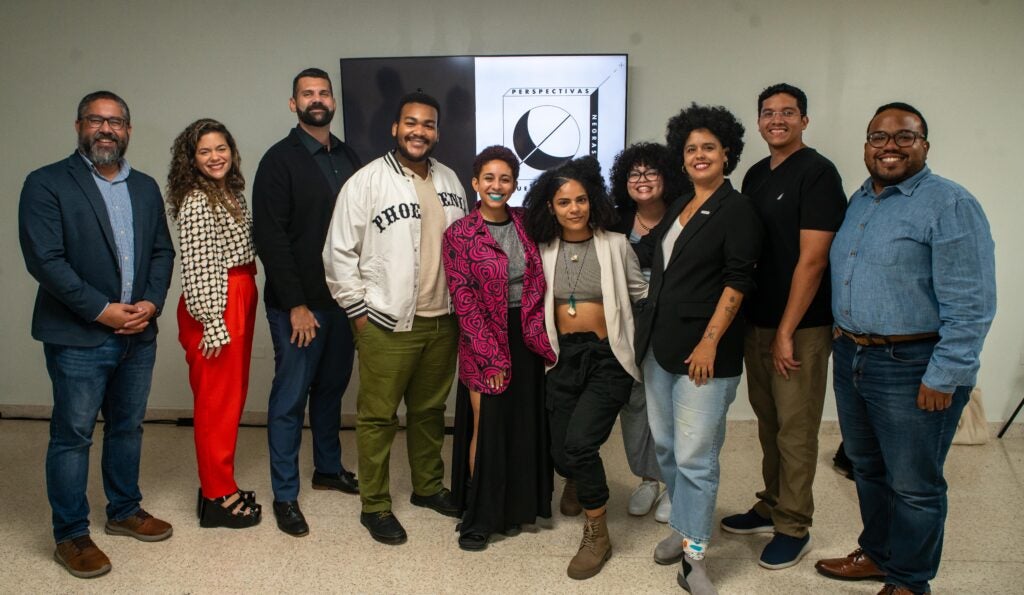
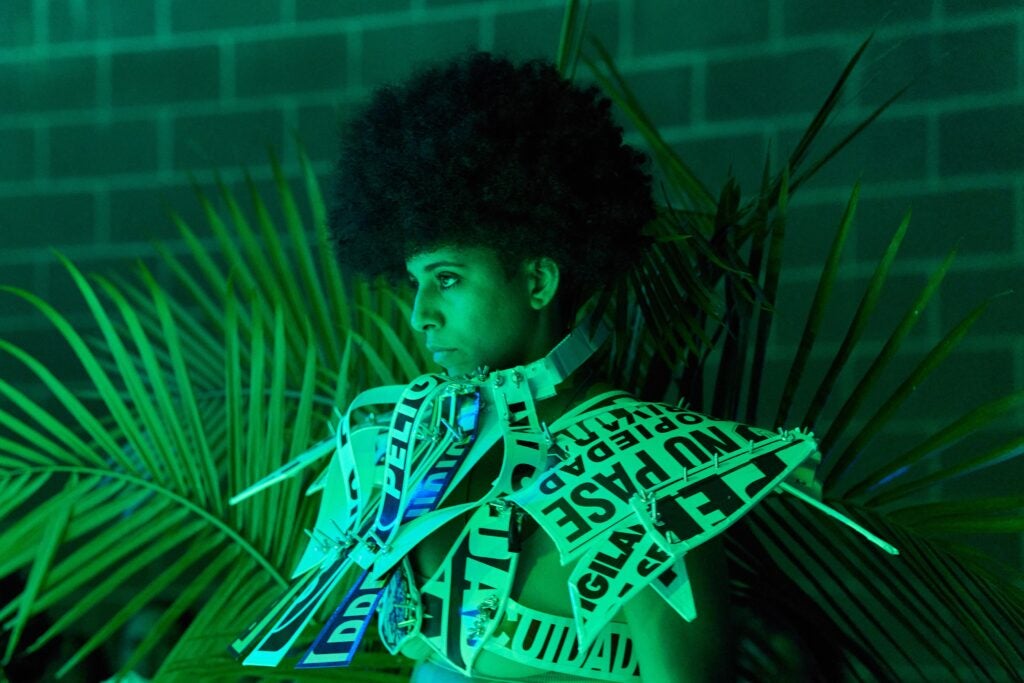
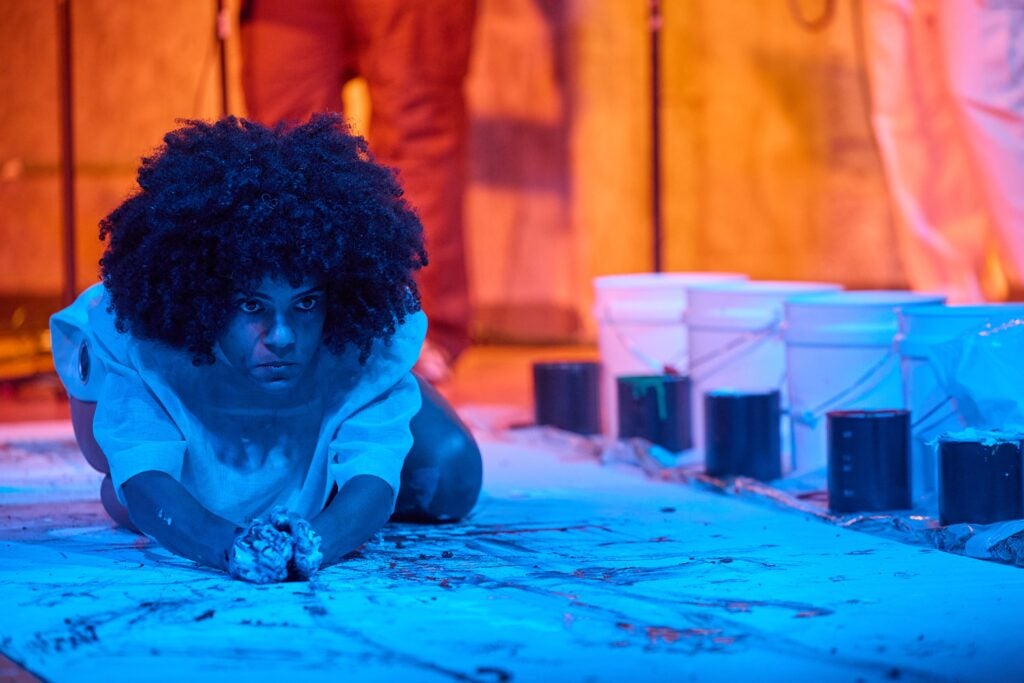
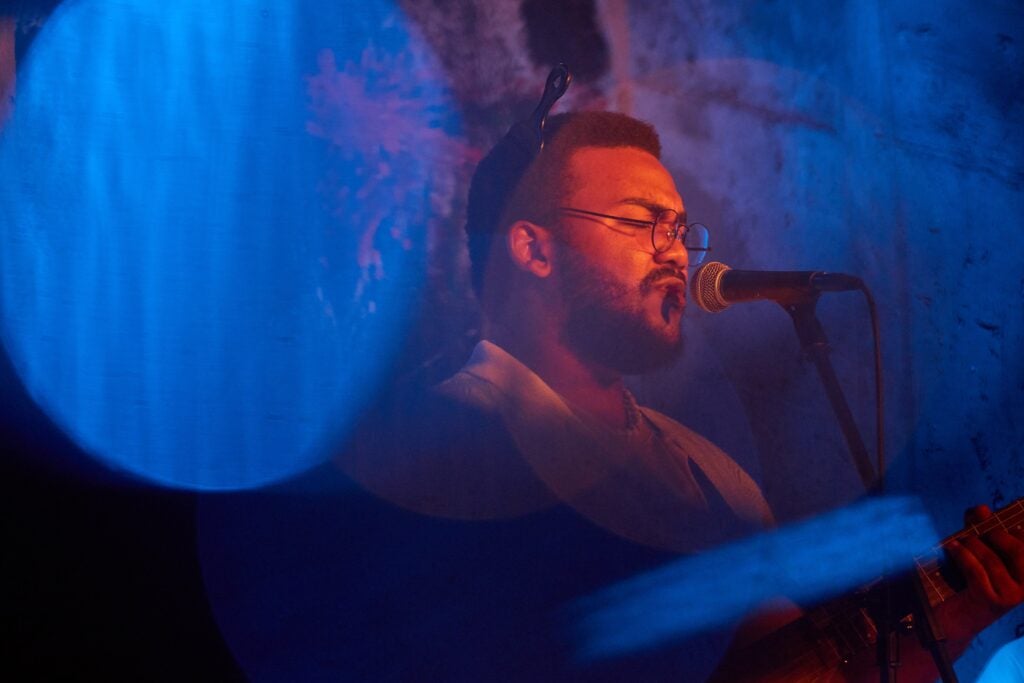
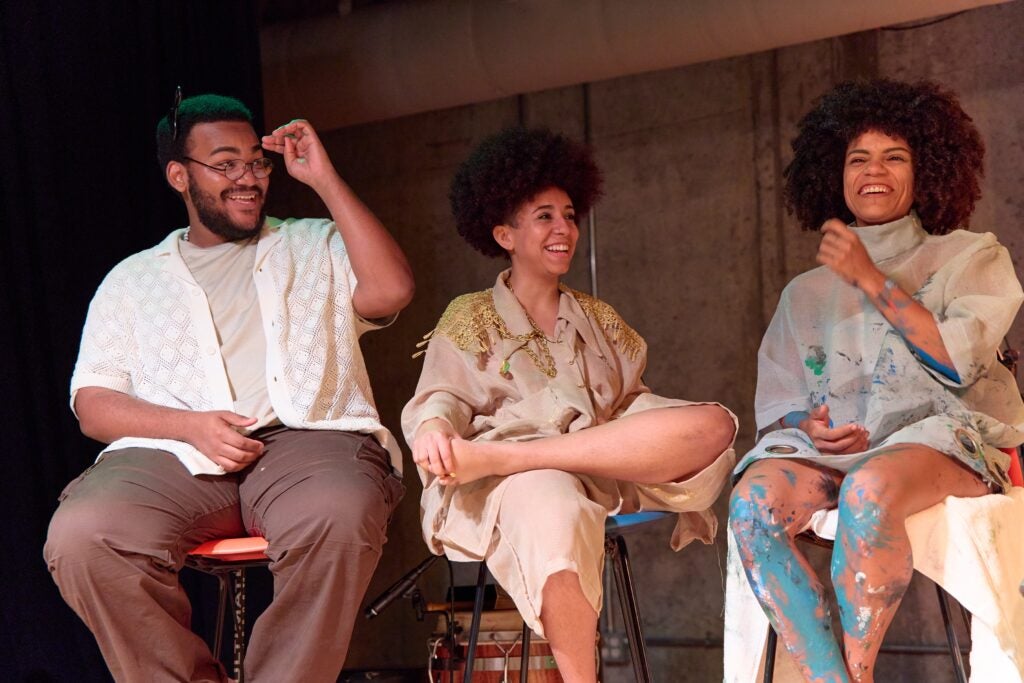
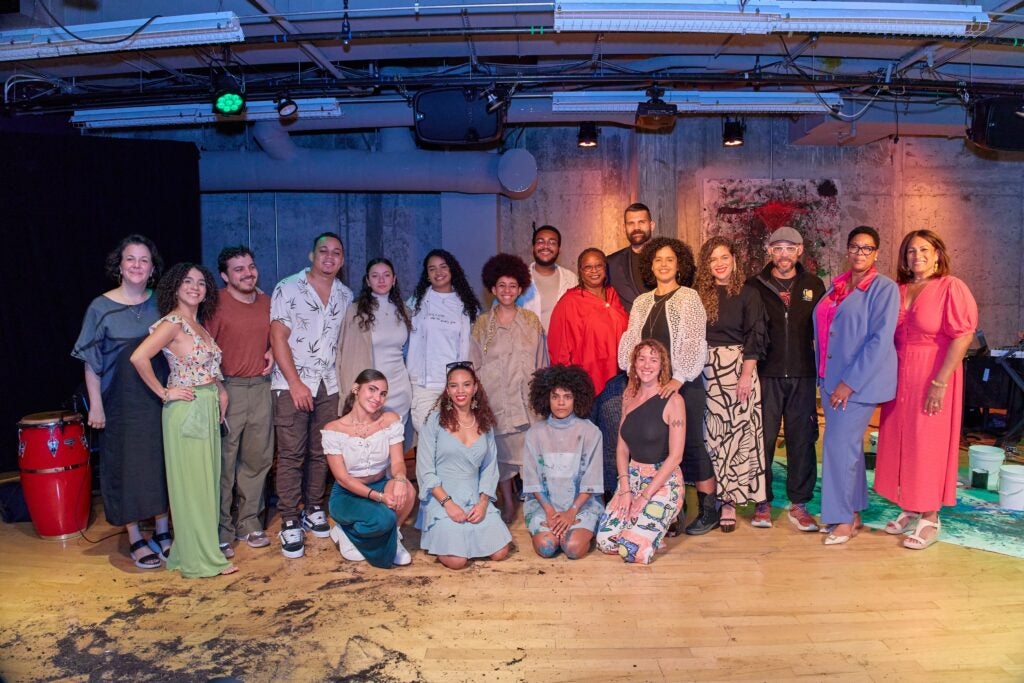
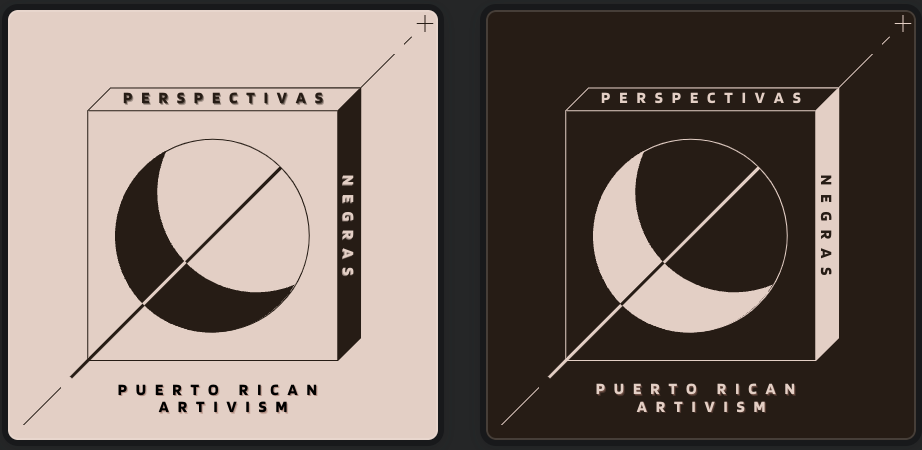
Perspectivas Negras is a collaboration between the Instituto de Cultura Puertorriquena, the Universidad de Sagrado Corazón, the Flamboyan Foundation, and The Woodshed Center for Art, Thought, and Culture at the Georgetown University Racial Justice Institute. This residency aims to collaboratively develop ways of addressing racial inequality in Puerto Rico using arts methodologies. The ICP will grant three Puerto Rican artists funds to develop new work, the Universidad de Sagrado Corazon will host the artists for one year, and the Flamboyan Foundation will contribute production and travel costs for each artist. The commissioned works will anchor events that engage audiences in discussions about the impacts of racial inequities on the economic and social lives of Black people in Puerto Rico. Throughout their year in residence, the Woodshed will collaborate with Georgetown faculty members and Washington DC-based artist/scholars to virtually mentor the Puerto Rican artists across multiple Zoom workshops as they develop their work during the 2023-2024 academic year. In the Spring and Summer of 2024, the three artists will present their work in Puerto Rico at the Teatro Victoria Espinosa and then in Washington DC for public audiences and the Georgetown community.
Woodshed Collective
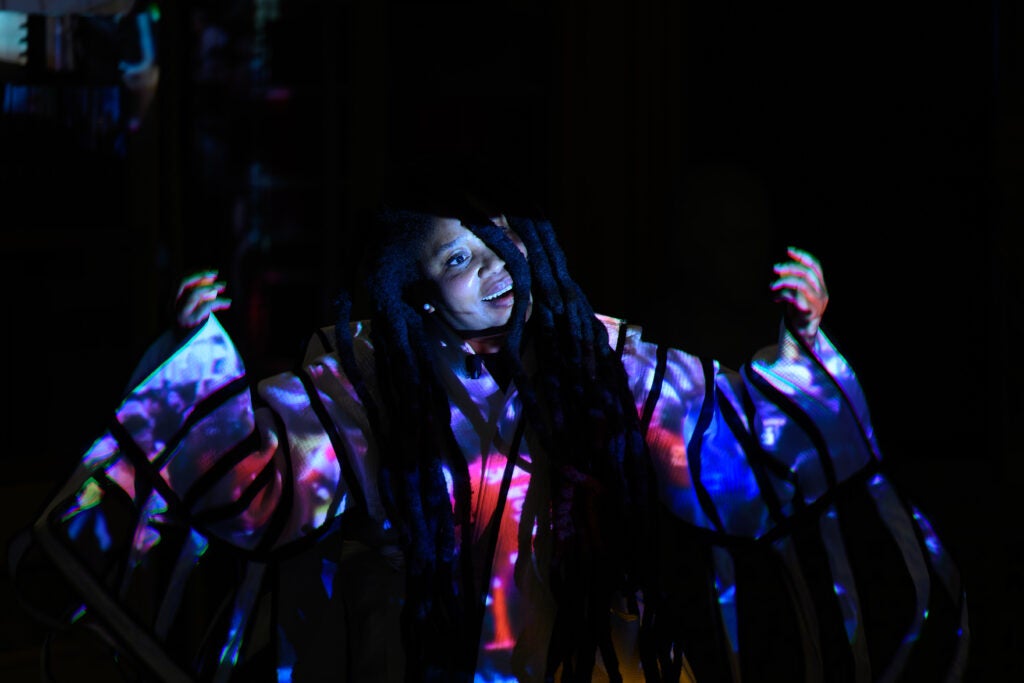
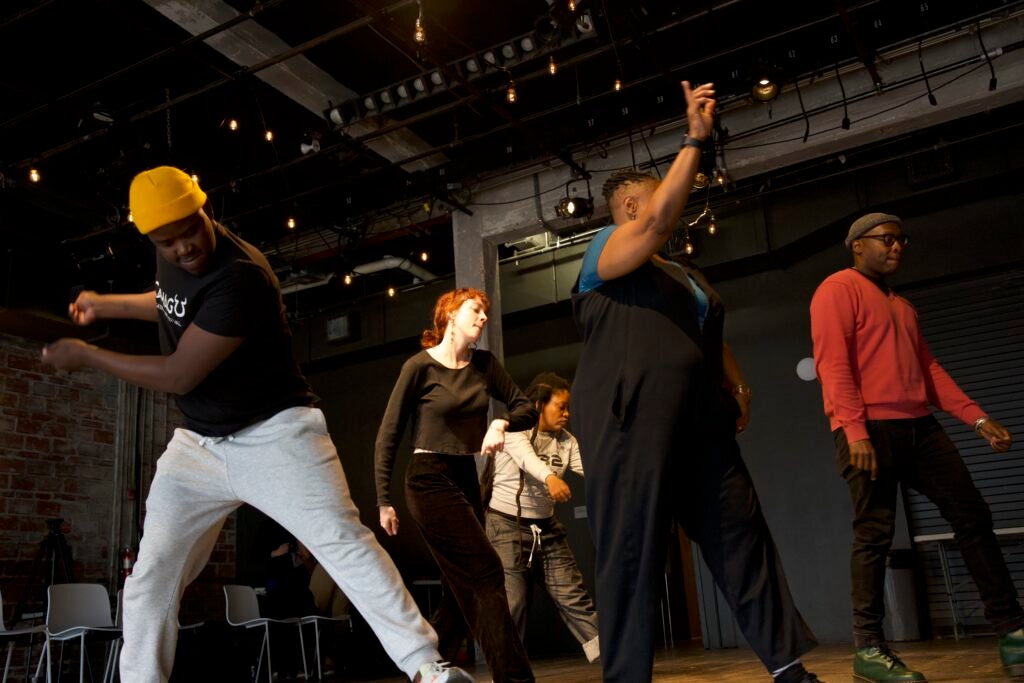
The Woodshed Collective is a multi-generational group of creatives who gather to develop new performance research methodologies for storytelling and experiment together with interdisciplinary creative forms. Under the creative direction of Anita Gonzalez, we convene researchers, and creatives who are actively making new written or devised work (which may include sound, choreography, or visual designs). We are working with an international collective of established artists/scholars to develop methodologies through creative 3-day immersions.
Cooking Up History: Honoring African American Resilience in the Chesapeake Bay
Cooking Up History: Honoring African American Resilience in the Chesapeake Bay. Food is central to memorials and community gatherings in African American cultures. The Cooking Up History project investigates Chesapeake Bay foodways as a strategy for memorializing descendants of the enslaved while celebrating the environmental sustenance of contemporary African American people. We plan to work with churches and other community organizations to honor the presence of African American ancestors by marking gravesites and organizing storytelling circles about history and food making. The RJI will collaborate with archaeologists to identify historical food practices of the enslaved, work with community members to restore cemetery sites, and educate students about unique histories of African Americans in the Chesapeake Bay region. Through these processes we will recognize both historical and living cooking legacies. African Americans communities of Maryland were particularly impacted by Jesuit enslavement and had limited food resources, yet many descendants continue to live in the region where they respond to the environment by cultivating and harvesting in an environmentally sustainable manner. This project complements work being done at by Laura Masur at the White Marsh Jesuit plantation. We have won small grants from Black Girls Vote and Georgetown University funding programs.
Gypsy and the Bully Door Community Engagement
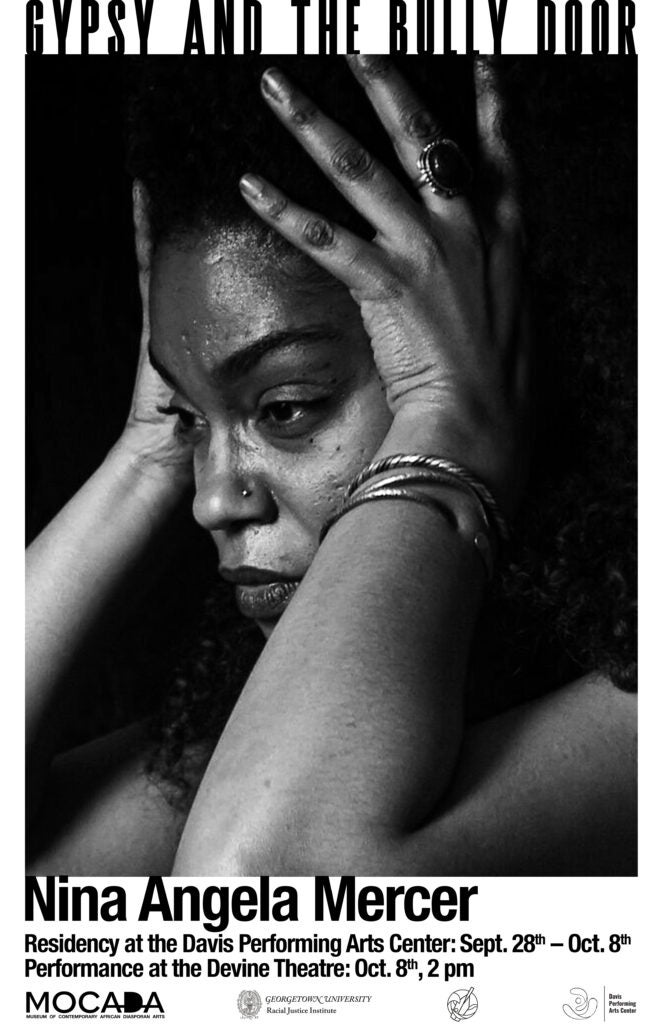
Synopsis: Sara has a dream, but life just keeps happening in ways that seem to pull that dream further and further away at every turn, especially when she keeps losing the people she loves. Though she fights to hold on, determined to shake loose the haunting of many past lives, there’s a cost. There’s also a way to heal. But the choice to be well is often more difficult than it seems. This story is a multi-media, immersive, and interactive ritual experience set to the undeniable call of DC’s Gogo music, led by The Mayor, our funk conductor and “lead talker,” while the full cast of vibrant characters becomes The Pocket Roll Call, a percussive band of characters who fuel and foil Sara’s movements, no matter where she goes to escape.
The Lorraine Hansberry Experimental Theater Laboratory at The Woodshed Center for Art, Thought, & Culture: GYPSY & THE BULLY DOOR had a two-week music and script development workshop at The Laboratory for Global Performance and Politics, co-produced by The Woodshed Center for Art, Thought, & Culture and Ocean Ana Rising, Inc. from July 5th to July 19th. The artists in residence for that workshop include Woodshed community engagement fellow and playwright, Nina Angela Mercer; the music director, Matt “Swamp Guinee” Miller; and director Eric Ruffin. A full cast was also present. Following the July workshop, GYPSY & THE BULLY DOOR will return to the Woodshed Center for Art, Thought, & Culture from September 28th to October 8th, 2023 for a creative process laboratory with a full cast. There will be a culminating performance open to the public on October 8th at 2 pm at The Devine Theater at Georgetown University. The culminating performance will include a panel discussion featuring Georgetown University and DC-metropolitan area community members.
South African Models for Education and Reparative Justice

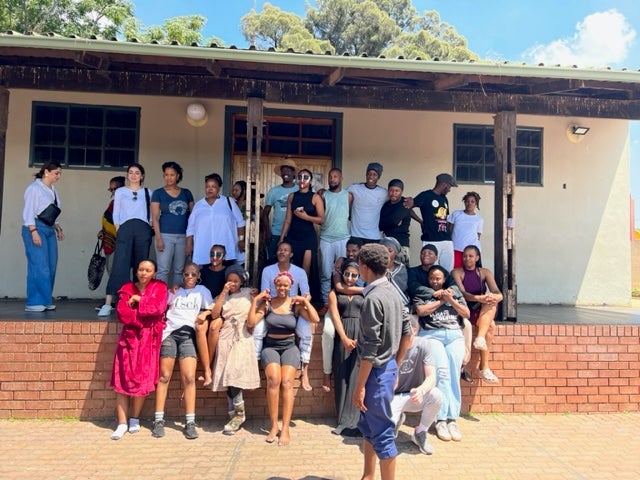
South African Models for Education and Reparative Justice is a collaboration between the Racial Justice Institute and community centers located in all-black townships outside of Johannesburg, South Africa where churches and NGOs are advancing the health and well-being of their residents through educational programs centering visual art, music, and theatrical storytelling as core program activities for economic empowerment. Specifically, we are working with:
A) The Funda Community College (located in Soweto Township) which is “reimagining learning alternatives through community education.” Their mission is to focus on the post-1976 genesis of community activism and youth mobilization believing in the value of community education as a vital social equalizer.
B) The Moses Molelekwa Community Centre (located in Thembisa Township) which is hosting the TX Theater, an arts organization developing programming about violence against women, men without fathers, and challenges to finding and making safe home spaces in Black communities.
C) The Kristo Inkosi Catholic Church (located in Kwa Thema Township) which runs a Saturday program where youth learn to play Marimba and participate in choral singing as a way of empowering them to advance their education and minimize health risks of living in a drug-laden community. The church also runs a reading and gardening program which draws over 100 youth each week.
Zora on My Mind Community Engagement
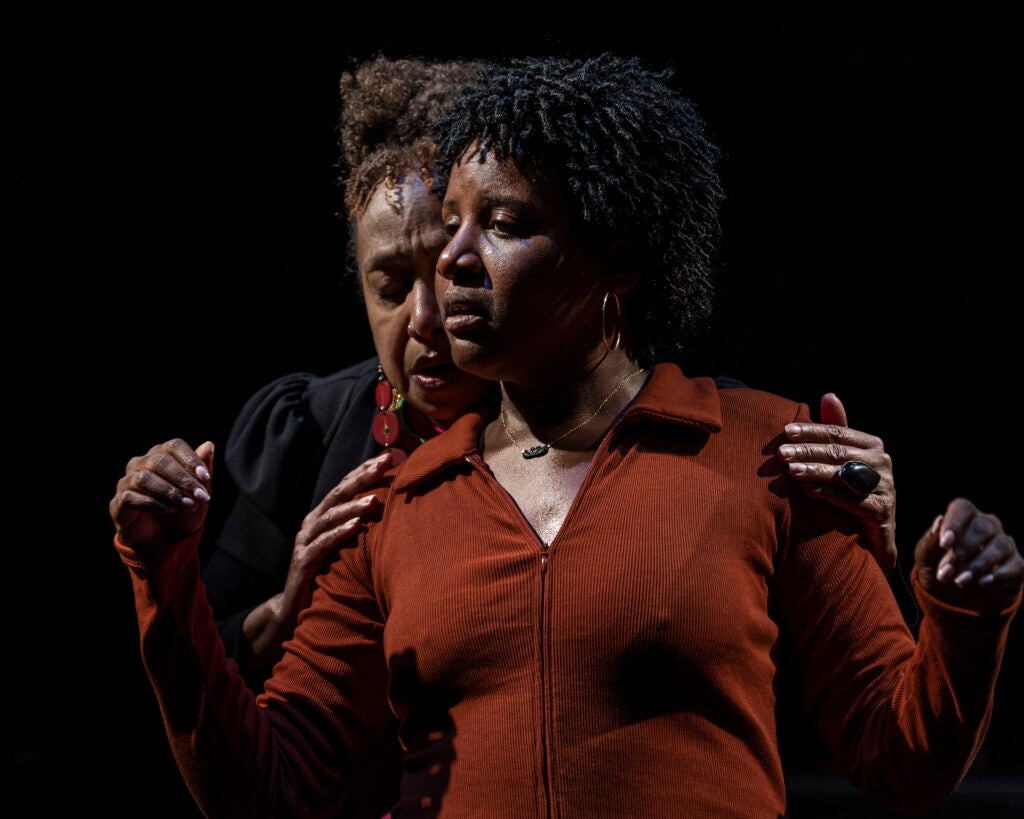
Zora on My Mind Community Engagement uses a theatrical work to engage communities in discussions about Black women’s domestic work, employment, and survival strategies. The project anchors in Washington DC and models a strategy of using art as a springboard for community activism. The presentation explores self-esteem and Black women’s empowerment, encouraging participants understand their beauty and their capacity. The project will tour to community centers, libraries, and public gathering spaces where focus groups will discuss the impact of employment and self-esteem on African American social status and mental health.
Draft and Sophie, two feisty woman spirits, one white and one black, invent a character (in the spirit of Zora) name KEY. KEY is a dispirited Black woman who owns a beauty chair she calls a shop and rents out rooms for cash after cleaning up white folks’ houses in Washington DC. When shoe shine salesman Malik rents a room in Key’s place, the two of them change up the story. The writers conjure up a dance contest and a hair show to show off Key’s talent, but in the end, Key makes her own space a – place for survival.
Bitter Flower
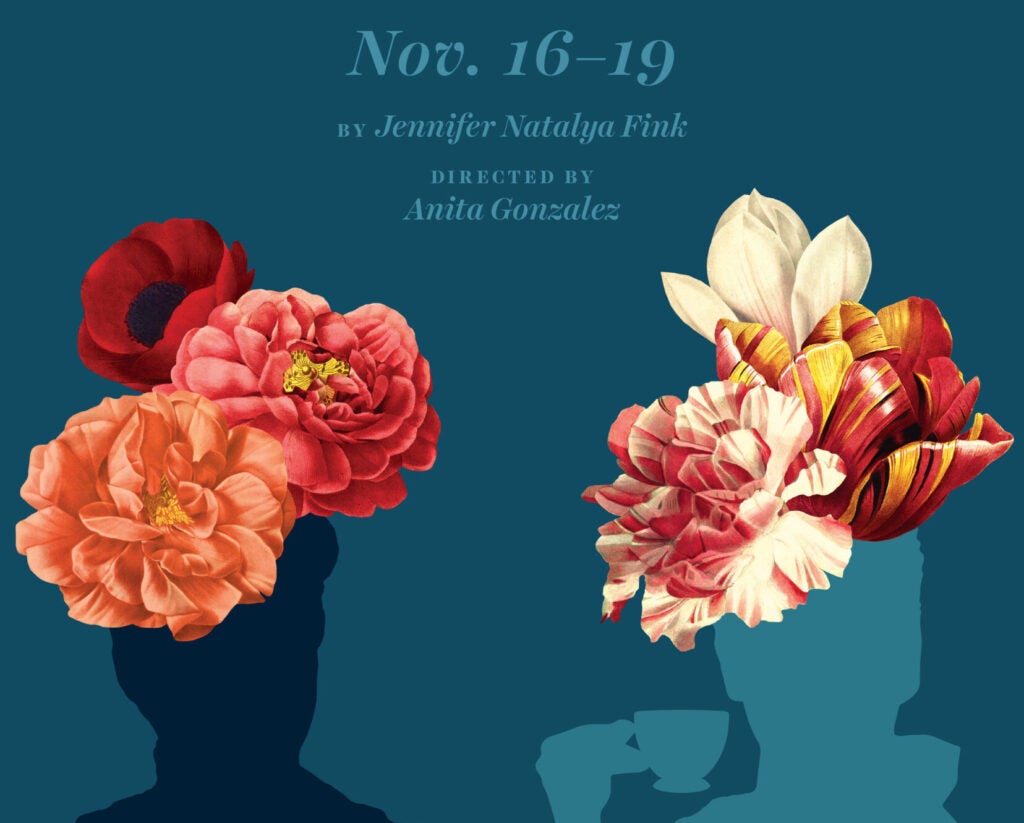
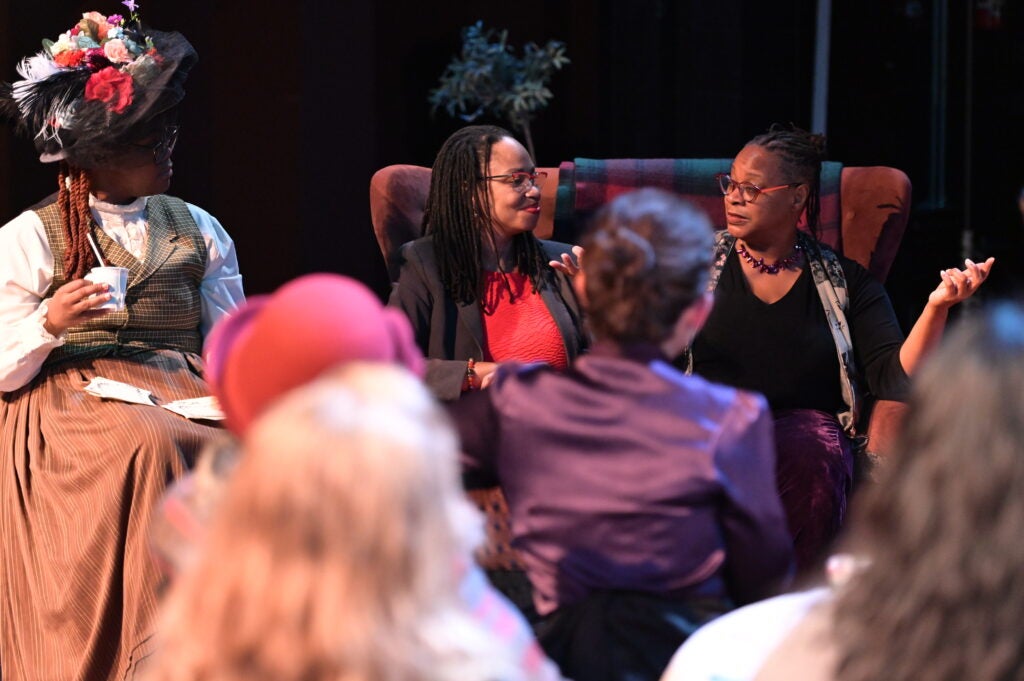
The Woodshed sponsored composer Jonathan Girling to come and develop music for Bitter Flower which explores the relationship between Ida B. Wells-Barnett and Jane Adams. Bitter Flower, by Award-winning novelist and playwright Professor Jennifer Natalya Fink (Department of English & Program in Disability Studies), examines the racism of the White suffrage movement and the visionary work of Black suffragists. Professor Anita Gonzalez (TPST and African American Studies; co-founding leader of the Racial Justice Institute) directed this workshop production, featuring original music by Jonathan Girling, whose work was recently heard on Broadway in The Kite Runner.
After each performance, the audience is invited to join for tea in the parlor with the cast and a special guest.
“I am hoping, Miss Adams, you can use your impressive voice to speak out against lynching.”
Black Communities and Enslavement in Liverpool UK
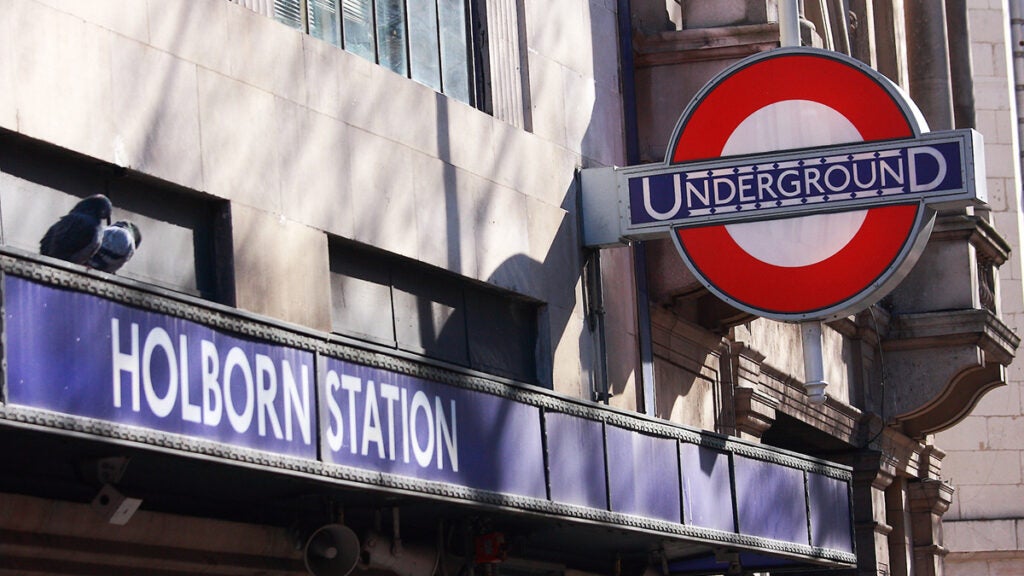
The Woodshed sponsored a series of collaborations and exchanges with artists and scholars in the United Kingdom who respond to legacies of the slave trade. Faculty members, students and GU272 descendants explore how origins of the slave trade in Liverpool impact communities in Washington DC, the Caribbean and the city of Liverpool.
Zora on My Mind
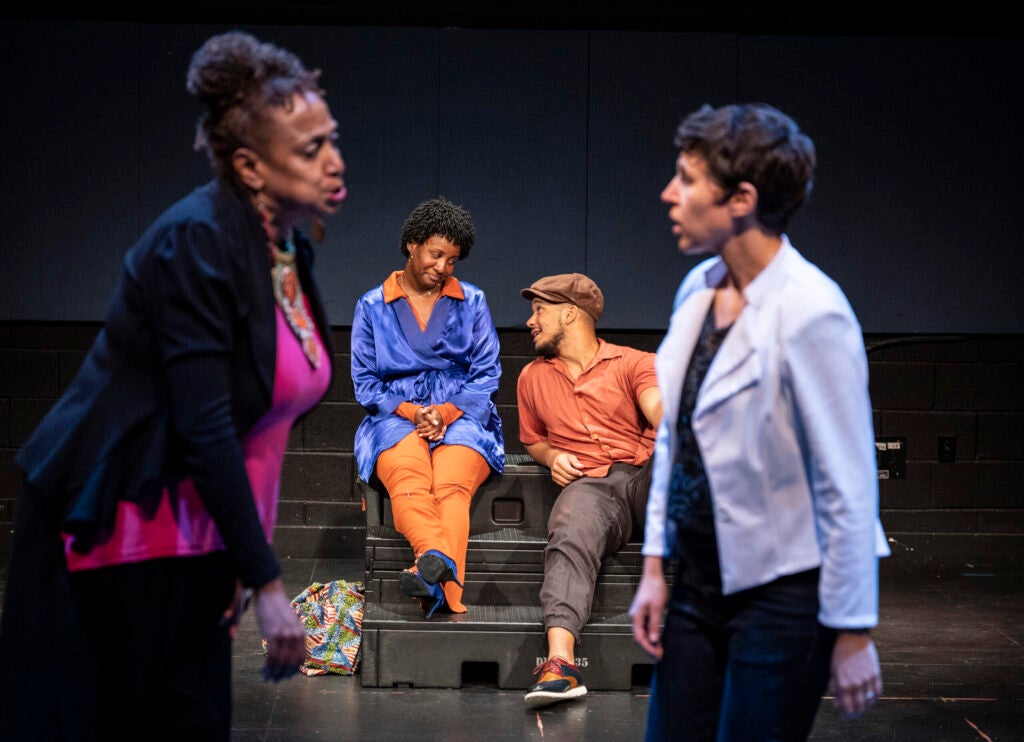
The Woodshed has sponsored continued development of Zora on My Mind, a jazz/blues chamber musical written by Racial Justice Institute co-founder/leader Anita Gonzalez. The work explores the nuances of representation, independence, and success for Black women. Dramaturg Jordan Ealey writes: “Inspired by the work of (Harlem) Renaissance woman Zora Neale Hurston, ZORA ON MY MIND fights against prescriptive narratives around race and gender and challenges the notion of what music theatre can and does look like.”
Indigenous Women: “How We Go Missing”
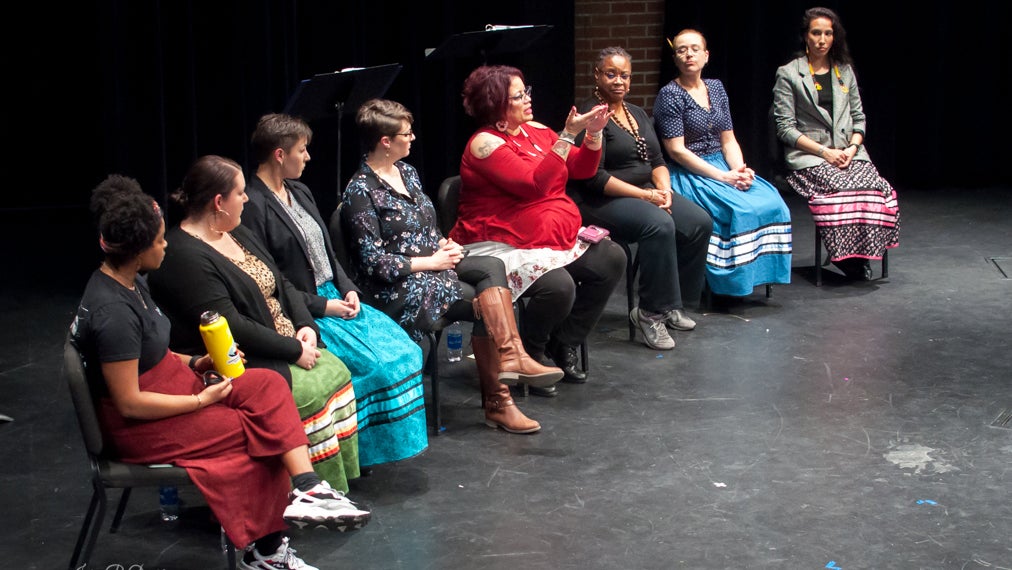
The Woodshed supported the residency of the Anishinaabe Theatre Exchange, a collective of indigenous artists developing new work for the theatrical stage. In collaboration with the Center for Global Performance and Politics, the artists from the collective will participate in panels and performances as a part of the 2022 Gathering in the Gonda Theatre at Georgetown University.

